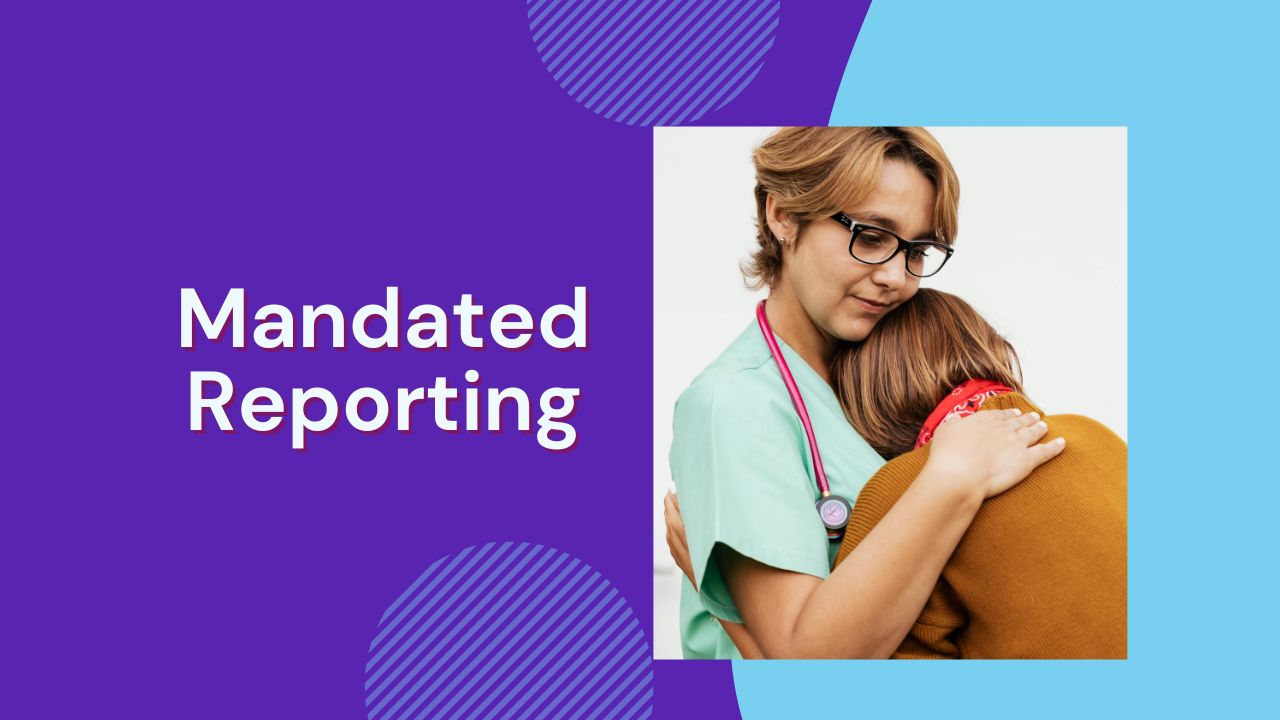PRN is one of the most commonly used phrases in healthcare. It’s found in charting, staffing, medication orders, care plans—everywhere. Nurses, nursing assistants, pharmacists, doctors, and therapists, nearly all of them use it, write it, or work it in daily practice.
Today, the PRN medical abbreviation represents more than its literal Latin translation.
For nursing clinicians, PRN work has become a modern path to flexibility, higher earning potential, and more control over how (and where and when) they practice. More clinicians are intentionally using PRN shifts to explore settings, prevent burnout, and align work with their lifestyles and personal goals.
This is the PRN nursing meaning today—not just an abbreviation, but an entirely different way nurses are choosing to work.
What does PRN stand for in medical terms?
In simple clinical language, what is PRN in medical terms? It means care or action that is taken only if and when it’s needed.
PRN comes from the Latin phrase pro re nata. The PRN full form in medical language translates to “as needed” or “as the situation demands.” In clinical practice, the PRN medical term is used in a few different ways:
- PRN nursing/staffing: PRN shifts are picked up as needed rather than on a fixed schedule.
- PRN medication orders: Medication administered only if a symptom occurs (example: PRN pain medication).
- PRN meaning in general use: “As needed” can apply to many operational or workflow decisions across care settings.
Understanding what PRN means in medical terms is core to understanding how today’s flexible staffing models and rapid-response shift coverage work in real time.
How PRN nursing works in clinical practice
In nursing, PRN work means clinicians choose when to pick up shifts based on availability, capacity, interests, and life outside the hospital or facility.
Instead of committing to a static schedule, PRN clinicians work “as needed” by taking shifts as demand spikes, seasonal volume shifts increase, or last-minute coverage is required.
Because healthcare demand changes constantly—admissions, acuity, seasonal illness, staff call outs—PRN nursing has become a practical, real-world way for facilities to remain staffed while also giving clinicians more agency.
PRN work can happen in hospitals, long-term care, outpatient clinics, rehab, home health, and specialty units, depending on licensure.
PRN is not just a different schedule structure—it’s a different flexibility model for the profession.
Why clinicians choose PRN work
Many clinicians intentionally pursue PRN nursing because it lets them decide how much they work, what shifts they accept, and where they want to build experience. Common motivators include:
- Increasing income through premium pay opportunities
- Shifting work volume during times of burnout or personal stress
- Exploring different settings without committing to one department
- Balancing other responsibilities, such as caregiving, parenting, school, or travel
- Maintaining skills while reducing full-time hours temporarily
- Working in settings that align with personal interest or purpose
PRN nursing gives clinicians permission to build a work life that actually supports their personal life—not the other way around.
PRN flexibility is not theoretical—it’s lived. As Ken, an LPN picking up shifts on Nursa, shared,
“I have classes, so when I have classes, I don’t pick shifts on those days. Or sometimes, I pick night shifts. That flexibility allows me to balance school and work.”
Benefits for facilities and clinicians
PRN nursing functions best when both sides benefit. Facilities gain rapid access to qualified clinicians at the exact moments they need support. Clinicians gain more control over when, where, and how often they work—while protecting personal wellbeing.
How PRN helps facilities
Healthcare demand isn’t static—acuity surges, seasonal illness spikes, call outs, and admissions can change within hours.
PRN staffing gives facilities a way to stabilize care delivery by bringing in qualified clinicians only when needed. Instead of maintaining maximum staffing at all times, organizations can protect resources, fill gaps with precision, and support internal teams without pressure to overextend core staff.
PRN models work because both sides win: flexibility becomes a shared benefit—not a burden placed on one party.
How PRN supports clinicians
For nurses and nursing assistants, PRN work is often a relief valve. It allows clinicians to select shifts that align with capacity—not fight against a fixed schedule. Many use PRN to earn more income, reduce burnout risk, sample new settings or specialties, or create more protected time for family, school, rest, or recovery.
It also supports career growth—moving between environments builds broader clinical intuition and adaptability that standard schedule structures rarely allow.
PRN nursing is becoming a key component of the modern nursing workforce—not a backup plan—because it gives both clinicians and healthcare systems more elasticity when it matters most.
Related: Find joy in nursing again with PRN jobs
PRN work and the rise of portfolio-career nursing
More clinicians are shifting toward portfolio careers—building income, experience, and purpose across multiple types of work instead of relying on one full-time position. PRN shifts support that trend naturally.
Nurses can blend settings and hours in ways that align with their life season, creating a career that adapts instead of constrains. This is one of the major modern drivers behind the surge in PRN nursing—flexibility becomes strategy, not compromise.
This is exactly the kind of range PRN can unlock. As Tracy, an LPN from Louisiana, put it:
“I started out doing skilled and long-term care, and then I moved into psych. I've done detox. I've worked LTACH in specialty hospitals and everything like that, too. So, I've had a bunch of different experiences.”
PRN vs part-time vs full-time
Knowing the PRN medical term and PRN meaning is one thing—understanding how PRN compares to other work schedule types helps clinicians choose what actually fits their goals.
In general, PRN nursing allows clinicians the most agency in determining when and where they’ll work. Full- and part-time nursing usually locks in predictable schedules, at the sacrifice of flexibility.
How PRN scheduling works today
In today’s workforce, PRN scheduling is often managed digitally. Instead of waiting for internal call lists or manager texts, clinicians can browse available shifts in real time through staffing platforms and mobile apps like Nursa, selecting only the shifts that align with their schedule and goals.
This makes PRN work more accessible, more flexible, and far easier to adapt around life, recovery, and personal capacity.
FAQs about PRN nursing and the PRN medical term
Clinicians often have specific questions about how the PRN medical abbreviation translates into real-world practice, flexibility, safety, taxes, and earning potential.
The questions below address the most common things nurses want to understand before choosing PRN work—whether they’re exploring it as a supplemental income option or considering PRN as a primary schedule model.
What’s the difference between PRN vs per diem?
In most healthcare staffing environments, PRN and per diem are used interchangeably and refer to clinicians who work “as needed.”
Some facilities prefer one term over the other, but in practice, both describe flexible shift-based work outside of a fixed schedule.
What is the difference between PRN and part-time nursing?
Part-time nurses have a recurring set schedule, while PRN clinicians pick up shifts only when they choose to. PRN offers more flexibility, whereas part-time offers more predictability.
How does working a PRN shift actually work?
Clinicians choose available shifts they want to accept, arrive ready to work, and adapt quickly to the facility’s flow.
Some settings offer brief onboarding or skills verification, but PRN shifts generally expect clinicians to be able to step in confidently and provide safe care immediately.
Is PRN nursing right for early-career clinicians?
PRN nursing can be a good option for early-career clinicians—but usually after they’ve gained some baseline experience.
Most facilities require nurses to demonstrate competency before working independently, especially when picking up PRN shifts without a full orientation period. Once a clinician has foundational skills and confidence, PRN work can be a powerful way to explore different care settings, develop clinical range, and build a career path that fits their long-term goals.
How many hours do PRN nurses typically work?
With Nursa, there’s no fixed requirement. Some clinicians pick up PRN shifts occasionally; others use PRN as their primary schedule model and work full-time hours this way. The flexibility is the point—clinicians can scale hours up or down depending on their needs, life season, and goals.
Do PRN nurses get benefits?
Usually no. PRN clinicians are typically paid a higher hourly rate because they’re not part of a standard benefits package. However, the increased pay often offsets that difference for many nurses who choose flexibility over traditional employment models.
How much do PRN nurses make?
PRN nurse pay rates vary based on license, specialty, urgency, location, and setting type. Typically, PRN clinicians earn more per hour than comparable scheduled staff roles because they help facilities fill immediate staffing needs.
How does tax filing work for PRN nurses?
Many PRN nurses are treated as independent contractors and need to track income, set aside taxes, and manage deductions differently than W-2 staff employees.
As Beatriz, LPN, explained: “When tax season comes, I hardly get any taxes taken out because I write everything off that needs to be written off.”
Check out our tax guide for 1099 contractor nurses.
Can PRN nurses have work-life balance?
Yes—this is one of the most common reasons clinicians choose PRN work. The PRN model lets nurses protect their time, energy, and wellbeing by controlling when, where, and how often they work.
Jessica, RN, describes the reality well:
“I think sometimes people think that nursing is rigid and not flexible, but I actually think it is flexible and that you can really create your own schedule. As a mom and a wife, I’ve been able to really juggle a work schedule around everybody else’s schedule.”
PRN nursing: Work on your terms
Haven’t tried it yet?
If you’re craving a change of setting, flexibility, or just want a side job with great hourly pay rates and no long-term commitment, PRN nursing could be just what you’re looking for.
PRN work gives clinicians the freedom to choose how often they work and where they can build experience. That means you can do it occasionally, seasonally, as a side hustle, or even turn it into your own full-time portfolio-style career model.
Browse available PRN nursing shifts in healthcare facilities and hospitals near you. What fits your schedule, goals, or price point?
Start picking up shifts on your terms when you sign up with Nursa.












.jpg)
